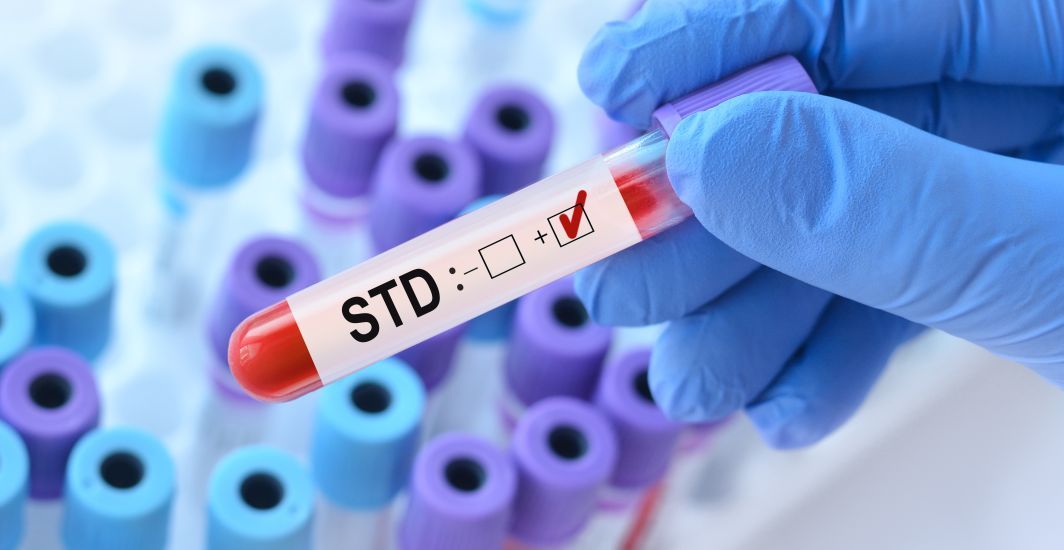General Health
Unexplained Fever or Muscle Pain? Check for Underlying Tissue Damage with This Test
6 min read
By Apollo 24|7, Published on - 30 May 2025
Share this article
0
0 like
.jpg?tr=q-80)
Have you been experiencing persistent muscle pain, unexplained fever, or general fatigue that doesn’t seem to have a clear cause? While infections and inflammation are common culprits, there may be a less obvious reason behind these symptoms: tissue damage. Whether it’s due to muscle injury, organ stress, or underlying disease, identifying tissue breakdown early can make all the difference. That’s where the LDH test becomes crucial.
The LDH blood test (Lactate Dehydrogenase test) is a simple yet powerful diagnostic tool that helps detect cell and tissue damage throughout the body. When muscles, liver, lungs, heart, or other tissues are injured or inflamed, LDH levels in your blood can rise significantly, providing important clues to your healthcare provider about what might be going wrong inside your body.
What Is the LDH Test and Why Is It Important?
Lactate Dehydrogenase (LDH) is an enzyme found in nearly all living cells. It plays a vital role in energy production, converting sugar into energy that cells can use. However, when tissues are damaged, due to injury, infection, inflammation, or disease, LDH leaks into the bloodstream.
The LDH blood test is used to measure the amount of this enzyme in your blood. Elevated levels can indicate that there’s ongoing tissue damage somewhere in the body, even if the symptoms are vague or confusing. This makes it a helpful test in diagnosing conditions ranging from heart attacks and liver disease to muscle trauma and certain cancers.
Common Symptoms That May Indicate a Need For LDH Test
Because LDH is present in many types of tissue, the symptoms that trigger this test can vary widely. Your doctor may recommend an LDH test if you’re experiencing:
- Persistent fever with no clear cause
- Unexplained muscle pain or muscle weakness
- Fatigue or malaise not linked to sleep or diet
- Abnormal liver function tests or jaundice
- Shortness of breath or chest discomfort
- Enlarged lymph nodes or swelling
Monitoring after chemotherapy or radiation
These signs may point to cell damage in your muscles, liver, lungs, blood, or even tumours, and the LDH blood test helps narrow down the location and severity of the damage.
How Is the LDH Blood Test Performed?
The LDH test is a standard blood test that involves drawing a small sample of blood, usually from a vein in your arm. It’s a quick and straightforward procedure that takes just a few minutes.
What to expect during the test:
- No special preparation or fasting is usually needed.
- You may be asked to avoid intense physical activity before the test to prevent falsely elevated LDH levels due to muscle strain.
- Let your doctor know about any medications you’re taking, as some drugs can influence LDH levels.
Have more questions?
LDH Normal Range and Interpretation
Understanding your LDH levels can help determine the presence and severity of tissue damage. The typical reference range for LDH in adults may vary slightly between laboratories, but the general normal range is:
Blood LDH (Serum LDH):
- 125 to 220 units per litre (U/L)
- Values outside this range may indicate underlying issues.
- However, interpreting LDH results isn’t always straightforward. Elevated LDH levels don’t specify the exact source of damage, rather, they signal that further investigation is required.
- To pinpoint the origin, doctors often look at LDH isoenzymes, which are different forms of the enzyme found in various tissues:
- LDH-1 – Heart and red blood cells
- LDH-2 – White blood cells
- LDH-3 – Lungs
- LDH-4 – Kidneys and pancreas
- LDH-5 – Liver and skeletal muscle
- Testing these isoenzymes can help narrow down where the damage is occurring.
1. High LDH Levels (Hyperlacticaemia)
Elevated LDH levels often suggest tissue damage, though they do not specify the location or cause. High levels may indicate:
- Liver disease: Hepatitis, liver failure, cirrhosis
- Heart conditions: Myocardial infarction (heart attack), heart failure
- Blood disorders: Haemolytic anaemia, megaloblastic anaemia
- Muscle injury: Trauma, inflammation, intense physical activity
- Infections or inflammation: Bacterial or viral infections
- Cancers: Lymphoma, leukaemia, germ cell tumours
Persistently high LDH levels may lead doctors to order additional tests to localise and confirm the underlying problem.
2. Low LDH Levels (Hypolacticaemia)
While less common, low LDH levels can also occur. These may be associated with:
- Genetic enzyme deficiencies
- Excessive vitamin C intake, which can interfere with measurements
- Advanced kidney disease (rarely)
Low levels are usually not a cause for concern unless accompanied by other abnormal findings.
Managing Abnormal LDH Levels
If your LDH test reveals abnormal levels, the underlying cause must be identified to determine the appropriate course of action. Since LDH is a non-specific marker of tissue damage, management depends on the condition responsible for the elevation or reduction.
1. Identify and Treat the Underlying Cause
Elevated LDH levels are often a symptom of an existing condition, such as:
- Liver disease
- Muscle injury or inflammation
- Infections
- Anaemia
- Certain cancers
Treatment typically focuses on managing or resolving the root condition. For example:
- Liver support medications and lifestyle changes for hepatitis or cirrhosis
- Antibiotics or antivirals for infections
- Cancer treatment (chemotherapy, radiotherapy, or surgery) in malignancies
- Rest and rehabilitation in cases of muscle injury
2. Avoid Activities or Medications That Elevate LDH
Some non-medical factors can influence LDH levels. You can help reduce false readings or additional strain by:
- Avoiding strenuous exercise before testing
- Informing your doctor about any medications or supplements you take
- Limiting alcohol intake, which can affect liver function
3. Monitor Levels Over Time
Repeat testing may be recommended to track your condition’s progression or response to treatment. Persistently high or rising LDH levels may indicate worsening tissue damage or ineffective treatment, while falling levels can be a positive sign of recovery.
4. Follow Specialist Advice
Depending on your LDH results, you may be referred to a specialist:
- A haematologist if a blood disorder is suspected
- A hepatologist for liver-related conditions
- An oncologist for cancer diagnosis or monitoring
- A rheumatologist if inflammatory or autoimmune conditions are present
Complementary Tests Often Ordered with the LDH Test
To arrive at a clearer diagnosis, doctors may combine the LDH test with other investigations:
- Creatine Kinase (CK) Test: Helps assess muscle damage specifically.
- Liver Function Tests (LFTs): Used to confirm liver-related tissue damage.
- Troponin Test: For heart-specific injury, especially after a suspected heart attack.
- C-Reactive Protein (CRP) or ESR: Indicators of inflammation.
- Complete Blood Count (CBC): To detect signs of infection or anaemia.
- MRI or CT Scan: For a detailed view of organs or tissues suspected to be affected.
Conclusion
When you’re dealing with confusing or non-specific symptoms like fever, fatigue, or muscle soreness, the underlying issue may be tissue damage—sometimes hidden, sometimes systemic. The LDH test offers a valuable, cost-effective way to identify such damage early. Although it doesn’t pinpoint the exact problem on its own, it provides an essential clue that guides your doctor toward more targeted testing and treatment.
General Health
Leave Comment
Recommended for you

General Health
How Does Chemotherapy Work?
The rapidly dividing cancerous cells outnumber healthy ones at a devastating rate. Chemotherapy is one such treatment modality that stops this lethal multiplication, besides radiation and surgery. Read along to know the role of chemotherapy in cancer treatment.

General Health
Importance of Early Diagnosis in Healthcare
Discover why early diagnosis in healthcare is vital. Learn about its impact on treatment outcomes and patient well-being.

General Health
Top STD Test Packages For Couples
Explore top STD test packages for couples. Ensure safety and peace of mind with reliable, confidential, and comprehensive sexual health screenings.
Subscribe
Sign up for our free Health Library Daily Newsletter
Get doctor-approved health tips, news, and more.
Visual Stories

Plant-based Foods That Are a Great Source of Iron
Tap to continue exploring
Recommended for you

General Health
How Does Chemotherapy Work?
The rapidly dividing cancerous cells outnumber healthy ones at a devastating rate. Chemotherapy is one such treatment modality that stops this lethal multiplication, besides radiation and surgery. Read along to know the role of chemotherapy in cancer treatment.

General Health
Importance of Early Diagnosis in Healthcare
Discover why early diagnosis in healthcare is vital. Learn about its impact on treatment outcomes and patient well-being.

General Health
Top STD Test Packages For Couples
Explore top STD test packages for couples. Ensure safety and peace of mind with reliable, confidential, and comprehensive sexual health screenings.